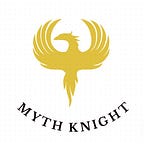Peace, Hope and Longevity: The Olive Tree
Peace, hope and longevity… The three are the great values that humanity has wished for thousands of years. And seeking these values, humanity has embodied them in an archaic figure of the olive tree. Thus, stories of the olive tree have been told from generation to generation and the virtues symbolized by it have become sacred along with the tree itself.
Before focusing on the mythological legend of the olive tree, we wish the tell one of the oldest stories of the tree, narrated in the Old Testament. According to the verses, Noah, the last pre-Flood patriarch of the Abrahamic religions, was told by God that there would be a great flood that would erase all the life from the earth. Then, God ordered him to build a large ship (Noah’s Ark), then to gather his followers together, and collect female and male pairs of all animals. After The Flood erased the life outside the Ark, Noah sent a dove from the ark to see if the tide had receded. However, as there was no recession, the dove returned to the ship quickly. Seven days later Noah sent out the dove again, and that time the dove returned to the ark with a branch of an olive tree. So everyone understood that the waters had receded. At that moment, the branch brought by the dove became the symbol of peace and hope, and the olive tree became the symbol of longevity, as it survived the destruction of the flood.
The story we are focused on is a mythological legend that tells how and after whom the Greek city of Athens was named. This legend is based on a competition between Athena and Poseidon.
Athena was the Goddess of wisdom, warfare and handicraft in ancient Greece. She was born fully-grown and armed from his father Zeus’ head after her father had swallowed her mother Metis. Athena was Zeus’ favourite and strongest child, so she was the protector of various cities and there were temples dedicated to her.
She has been depicted wearing a helmet and holding a spear since ancient Greece, and is famous for competing with other gods and goddesses.
Poseidon was the God of the sea, storms, earthquakes and horses. Poseidon was born to the Titans Rhea and Cronus and was the younger brother of Zeus. He was the protector of seafarers and Hellenic cities and colonies. Having the title “Earth Shaker”, he had many conflicts with both gods & goddesses and the humans.
Poseidon is always depicted with a beard and holding the Trident (the three-pointed spear made by the Cyclopes) and is sometimes seen in a chariot.
The competition between Athena and Poseidon is based on Zeus’ plan to name after a city (newly established in the Attica region of Greece by the king Cecrops) with the name of the winner god or goddess. Zeus also promises the winner the protection of that city and organises a competition between all gods and goddesses. Athena and Poseidon are the toughest rivals, so only the two are left at the end of the competition.
To win the competition, one must present the best gift to the people of Attica region, and this gift must be appreciated by both the gods and the people. The residents of Olympos and the humans go up to the Acropolis to determine the winner.
There, Poseidon strikes his Trident on a rock and then flowing water appears from the crack. Everyone looks at the source of the water with admiration because the water is so plentiful, and therefore there will no longer be a drought. But then they realize that the water is salty, in other words, it is the sea water. Since he is the god of the seas, he cannot create any water other than saltwater.
When it is Athena’s turn, she also strikes her spear on a rock and from that rock, an olive tree appears. — According to some narrations, she does not strike her spear to create the olive tree but she kneels quietly and buries the seeds of the tree in the ground. The tree grows in time, becomes majestic and has plenty of olives on its branches. These fruits become sustenance for the people of Attica with their flesh for eating, oil for lamps and cooking. Also, the wood of the tree is used to build boats and houses and to warm. For this reason, the Attic people adore Athena and want her to be the protector. Upon this occasion, Zeus declares her as the patron deity and gives the protection of the city to Athena. Thus, the city is named after Athens.
Since also Poseidon has been impressed by the incident, he accepts the superiority of the olive tree despite the hostility between them. Seeing his positive attitude, Athena breaks a small branch from the tree and holds it out to Poseidon as a sign of the peace between them. As of that day, the sea created by Poseidon has been the symbol of power and the branch from Athena’s olive tree is the symbol of peace. This incident is also the source of the saying “hold out the olive branch”.
Cursed with the destruction, the olive tree became a symbol of longevity; created from the competition, it became a symbol of peace and, by its mere presence, gave mortals the hope to continue. Perhaps these values of ancient times have been reinforced by the sanctity of the olive tree and have reached us with the help of a sacred branch holded us out from it. Perhaps these values of ancient times were reinforced by the sanctity of the olive tree and reached us with the help of a sacred branch extended to us by it.
